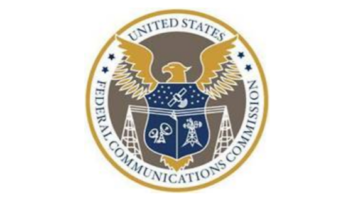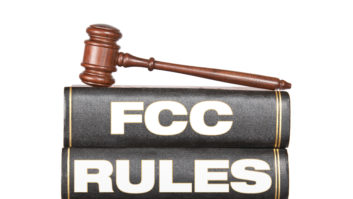While the rules surrounding public files must be followed, the Federal Communications Commission staff says it recognizes the extraordinary stress and uncertainty that the pandemic placed on U.S. radio stations.
As a result, as we’ve reported, the commission has entered into a significant number of consent decrees with licensees — many without attached monetary forfeitures — to resolve lapses in public file requirements.
The commission has adopted approximately 230 such agreements since 2020 when it began the process due to online political file deficiencies, an FCC spokesperson told Radio World.
“The consent decrees are intended to ensure that broadcasters understand and comply with their online political file obligations while acknowledging the financial difficulties that the radio industry has experienced due to the COVID-19 pandemic,” the spokesperson said.
This is the first license renewal cycle since radio stations began using the online public file, the spokesperson noted.
It’s especially important to comply with the rules surrounding political files, the FCC said. Updating these files keeps the public informed about requests for broadcast time by a candidate for public office.
“It is crucial that stations maintain political files that are complete and up to date because the information in them directly affects, among other things, the statutory rights of opposing candidates to request equal opportunities … and present their positions to the public prior to an election,” the Media Bureau wrote in a recent consent decree.
Specifically, FCC rules state that candidates for political office have one week from an opponent’s use of the airways to request an equal-use opportunity. A station that fails to promptly upload information about each request, the commission says, denies another candidate the notice they need to request equal access.
[Read more about the background of these decrees.]
These lapses in a station’s public file often become evident when the station applies for a license renewal.
That was the case with One Putt Broadcasting and its stations KJWL(FM) in San Joaquin, Calif., and KJFX(FM) in Fresno, Calif. The FCC Audio Division suspended processing of One Putt’s application because of its alleged failure to certify that it had complied with its public file obligations.
The situation was similar for Alexandra Communications, licensee of station KTIL(FM) in Bay City, Ore., when it filed a license renewal application.
A similar requirement tripped up KERU(FM) in Blythe, Calif. The Audio Division froze the processing of the license renewal after finding that the station had allegedly not complied with its overall public file (not simply political) obligations.
Station KTAI(FM) in Kingsville, Texas, is licensed by Texas A&M University and similarly saw its application held up.
In each case, the Media Bureau and the licensee negotiated a consent decree in which the licensee admits it violated the public file rules. The consent decree also requires that the station implement a compliance plan to ensure that they meet future online public inspection file rules.
Each licensee has 30 days from receiving notice from the FCC to name a compliance officer from its management team. That person must develop, implement and administer a compliance plan that includes a manual and training program for staff members. The licensee is also required to report any instances of noncompliance to the FCC’s political programming staff within 10 days after discovering it.
In the case of KERU and Texas A&M, the stations must submit a compliance report to the Audio Division one year from now. For One Putt and Alexandra, compliance reports must be sent to the Media Bureau periodically.
If all aspects of the consent decree are met, the arrangement will end after a compliance report is filed — but that’s only if the bureau is satisfied that all the requirements have been met.










